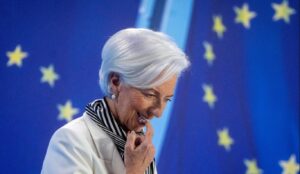BTC ETF Hopefuls Were Rattled by SEC Chair Comments. Here’s Why
4 min readBTC ETF applicants in the U.S. have been shaken by SEC Chair Gary Gensler’s latest comments about the cryptocurrency market.
Many of the firms that have recently petitioned the SEC for its approval to launch a BTC ETF, including Anthony Scaramucci’s Skybridge Capital, were bullish that Gensler—who had previously expressed an interest in crypto as a “catalyst for change”—would at last greenlight the investment product that has eluded the crypto market for years.
But in comments made Tuesday at the Aspen Security Forum, Gensler signaled that he would only be open to approving a BTC ETF under strict rules and not necessarily one that provides direct BTC exposure, as first reported by Bloomberg. Gensler said that he “particularly looked forward to” the SEC’s review of “ETFs limited to these CME-traded BTC futures.”
And a BTC futures ETF is not what the market wants, according to experts and those involved in the ETF space who spoke to Decrypt. “People don’t want BTC futures exposure, they want physical BTC exposure,” Bloomberg ETF research analyst James Seyffart said.
Gabor Gurbacs, director of digital asset strategies at VanEck, an investment firm that has filed an application to the SEC for a BTC ETF, said that a “physical exposure BTC ETF is more efficient than futures-based fund structures.” He claimed that futures contracts are expensive to roll out for the issuer, more costly for investors, and that, in general, the futures market is less liquid than the spot market, where traders buy and sell BTC directly.
“The SEC should allow market participants to pick products and not hold up structures that better protect investors,” he said.
An ETF, or exchange-traded fund, is a popular investment tool that allows people to buy shares that represent an asset, like real estate, gold, or foreign currencies.
A BTC and other crypto ETFs allow investors to invest in the digital asset without having to worry about actually buying and securely storing it (which can be tricky for some). CME, as name-checked by Gensler, is the Chicago Mercantile Exchange, a derivatives market which trades BTC futures: contracts that bet on the price of the biggest cryptocurrency.
A BTC ETF doesn’t yet exist in the U.S. but those approved in Canada have been extremely popular. The SEC has been reluctant to approve a BTC ETF for U.S. investors due to market manipulation concerns. But there is evidently demand for a BTC ETF in the U.S. market: several high-profile companies have applied to the SEC to get one approved, and the list seemingly grows larger with each passing month.
But Gensler’s openness for a BTC ETF that tracks futures would only expose investors to contracts that bet on the price of BTC going up and down. It appears that Gensler prefers this as the futures market is regulated by the Commodity Futures Trading Commission—whereas the BTC spot market, the buying and selling of physical BTC, isn’t regulated by either the CFTC or SEC.
“At the end of the day, BTC ETFs are working around the world in Europe, Canada, and elsewhere,” Seyffart added. “The U.S.-based traditional financial tools that people are using to get exposure to BTC are inefficient and costly. Whether that be Grayscale’s GBTC or using MicroStrategy as a proxy. But the SEC doesn’t seem to be taking any of that into account—which is an error in my opinion.”
Grayscale’s GBTC is an investment product which enables investors to trade shares in trusts holding large pools of BTC. It isn’t an ETF because it’s a trust that holds BTC. GBTC’s share prices have historically differed wildly from the price of BTC, the underlying asset.
It once sold at a premium, meaning investors would pay well above the price of BTC per share for the privilege of buying into the trust. But as demand in the product has faded, those shares now sell at a discount. “This isn’t Grayscale’s fault—it’s just a side effect of the structure,” added Seyffart.
Seyffart also said that if BTC is truly manipulated, market manipulation would still be a problem for a futures ETF because it would “feed through the futures market.” This is because they’re “inter-related,” according to the analyst.
Over the border in Canada, regulators can’t seem to approve BTC and ETH ETFs fast enough—and investors love them. Christopher Matta, president of 3iQ Digital Assets, one such fund, told Decrypt that a futures ETF would be a “small step” for U.S. investors.
“This dance has been going on for years, and I expect it to continue for several more as the regulatory landscape becomes clearer,” he said. “In the meantime, the asset management space in crypto will continue to innovate. In the near future I would expect asset managers to pivot to more flexible vehicle types, such as separately managed accounts (SMAs), which could be as attractive as ETFs over the long run.”







